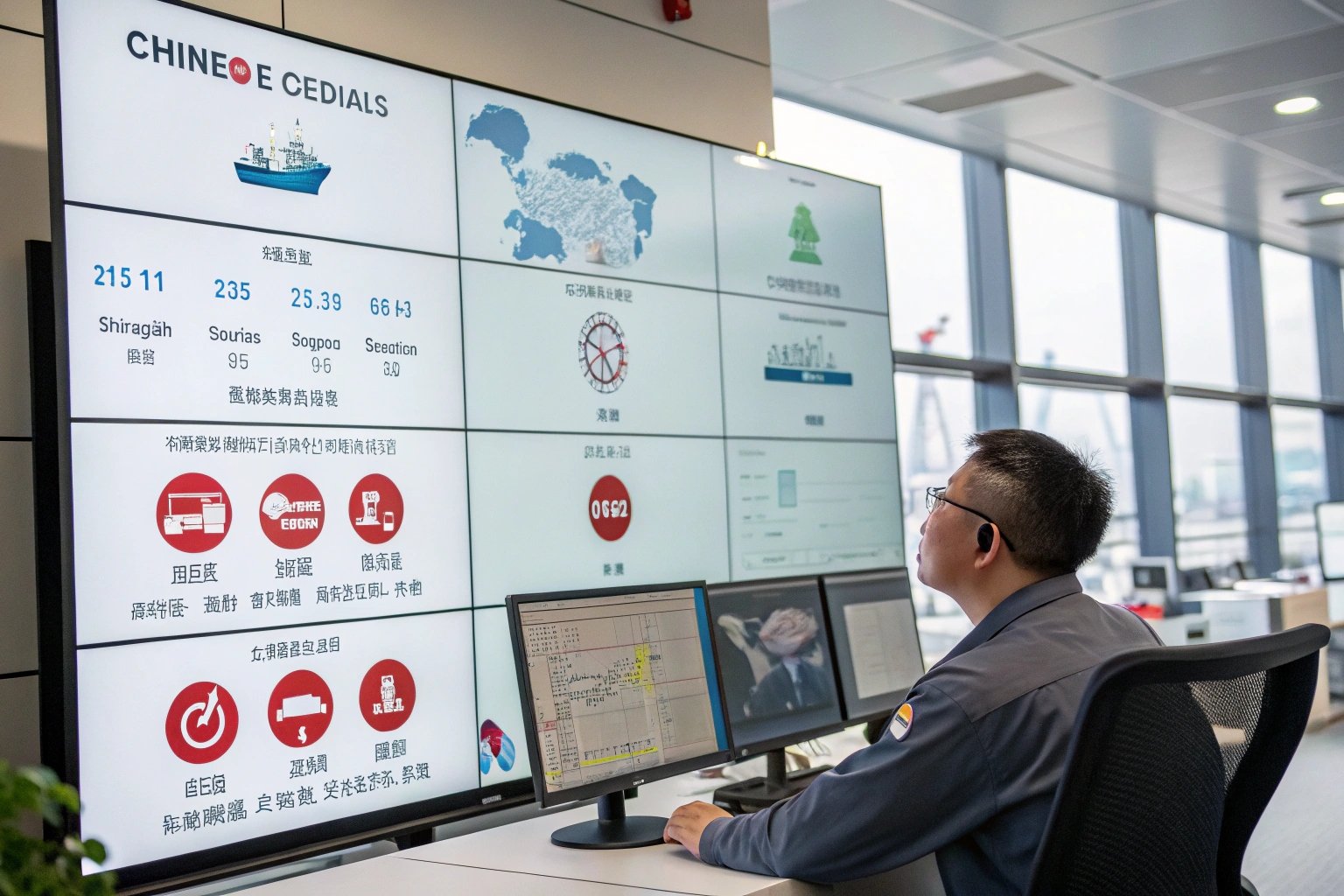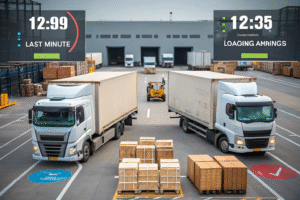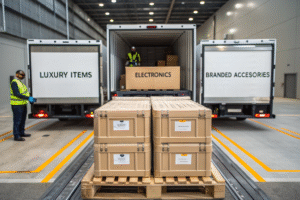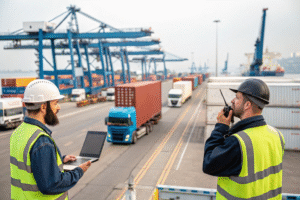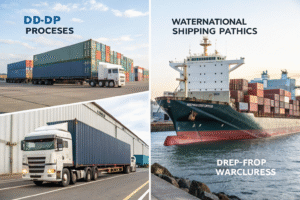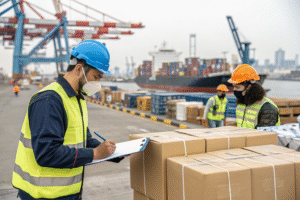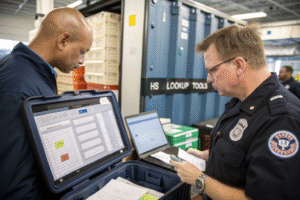When you source products from China, the port your goods leave from matters more than you think. It affects your freight rate, delivery time, and even the risk of delays.
China has over a dozen international container ports, but the major ones for exports to the U.S. and Europe are Shanghai, Ningbo, Shenzhen, Guangzhou, Qingdao, and Xiamen.
Choosing the right port isn’t just about geography. It’s about efficiency, cost, and connections. Let me walk you through the most important ports, how they compare, and what it means for your shipping.
Top Chinese ports for international container shipping
China has the busiest container ports in the world. They handle billions of dollars in goods daily — from electronics to apparel, furniture to food.
The top container ports in China for exports are Shanghai, Ningbo, Shenzhen, Qingdao, Guangzhou, and Xiamen. These ports serve as major global shipping gateways.
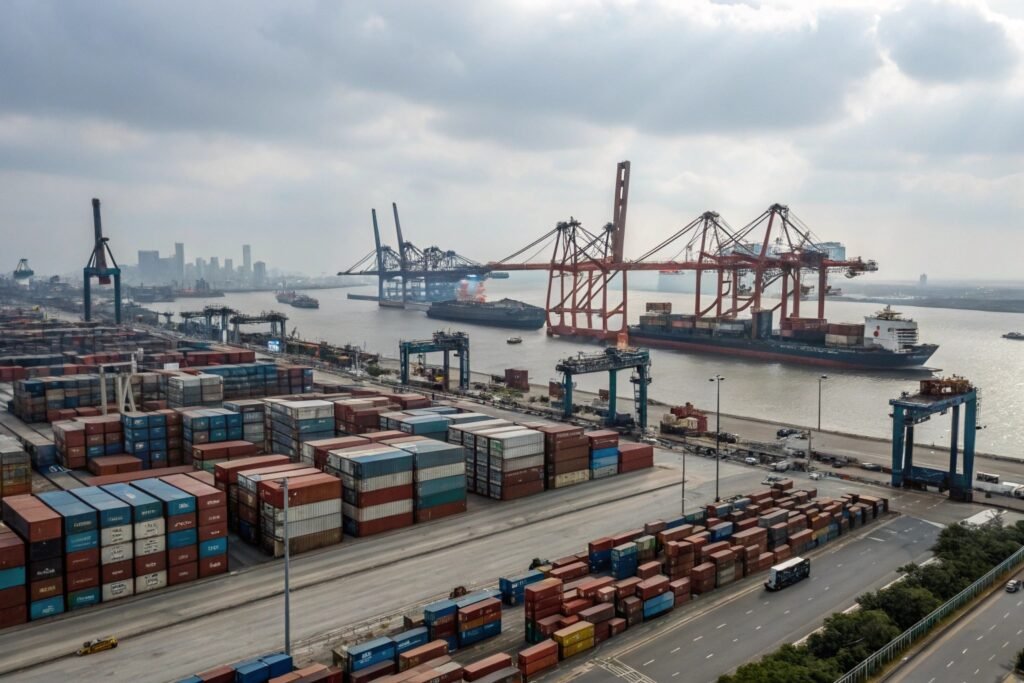
What are the largest container ports in China?
Here’s a snapshot of the busiest Chinese export ports by annual throughput:
| Port Name | Location | TEU Volume (2024 est.) | Key Export Goods |
|---|---|---|---|
| Shanghai Port | East China | 47 million | Electronics, machinery, textiles |
| Ningbo-Zhoushan | East China | 35 million | Apparel, plastics, machinery |
| Shenzhen Port | South China | 28 million | Consumer goods, electronics |
| Guangzhou Port | South China | 25 million | Furniture, chemicals |
| Qingdao Port | North China | 24 million | Metal products, auto parts |
| Xiamen Port | Southeast China | 12 million | Textiles, shoes, bags |
These ports connect to every major global shipping line. That means more frequent sailings, competitive rates, and better reliability.
At GeeseCargo, we choose the port based on your factory’s location, product type, and final destination. It’s never random.
Which ports are best for small businesses?
If you’re shipping LCL or small FCL batches, consider:
- Ningbo: Known for smooth LCL handling
- Xiamen: Lower congestion, faster export clearance
- Shenzhen-Yantian: Best for Amazon and B2C cargo
These ports may not be the biggest, but they’re efficient and cost-effective for medium-sized U.S. importers.
Which port is best for shipping to the USA?
Not all Chinese ports are equal when it comes to U.S.-bound cargo. Some offer faster transit times. Others give you better customs clearance or cheaper ocean freight.
For shipping to the U.S., the best Chinese ports are Shanghai, Ningbo, and Shenzhen. They offer direct sailings, multiple carriers, and lower rates for North American destinations.

How do different ports perform on U.S. routes?
Let’s compare:
| Chinese Port | Best U.S. Destination | Average Transit Time | Frequency |
|---|---|---|---|
| Shanghai | Los Angeles, NY, Houston | 15–35 days | Daily sailings |
| Ningbo | LA, Oakland, Savannah | 17–32 days | High capacity |
| Shenzhen (Yantian) | Long Beach, Seattle | 15–30 days | Strong Amazon route |
| Qingdao | East Coast Ports | 30–38 days | Fewer weekly options |
| Guangzhou | Houston, LA | 20–33 days | Medium frequency |
GeeseCargo often recommends Shanghai for speed, Ningbo for cost, and Shenzhen for Amazon FBA users.
Should port proximity to your factory matter?
Yes. A closer port = lower trucking cost and faster export clearance.
For example:
- If your factory is in Zhejiang, Ningbo is better than Shanghai.
- If your factory is in Dongguan or Shenzhen, use Yantian terminal.
- For Shandong factories, Qingdao is most efficient.
By matching port to factory, we help our clients reduce inland costs by up to 15%.
Port comparison: Shanghai vs. Ningbo vs. Shenzhen
These three ports handle over half of China’s U.S.-bound freight. Each has unique strengths — and some weaknesses too.
Shanghai is the world’s largest port, Ningbo offers the best rate-to-speed balance, and Shenzhen is ideal for Southern China factories and Amazon shipments.
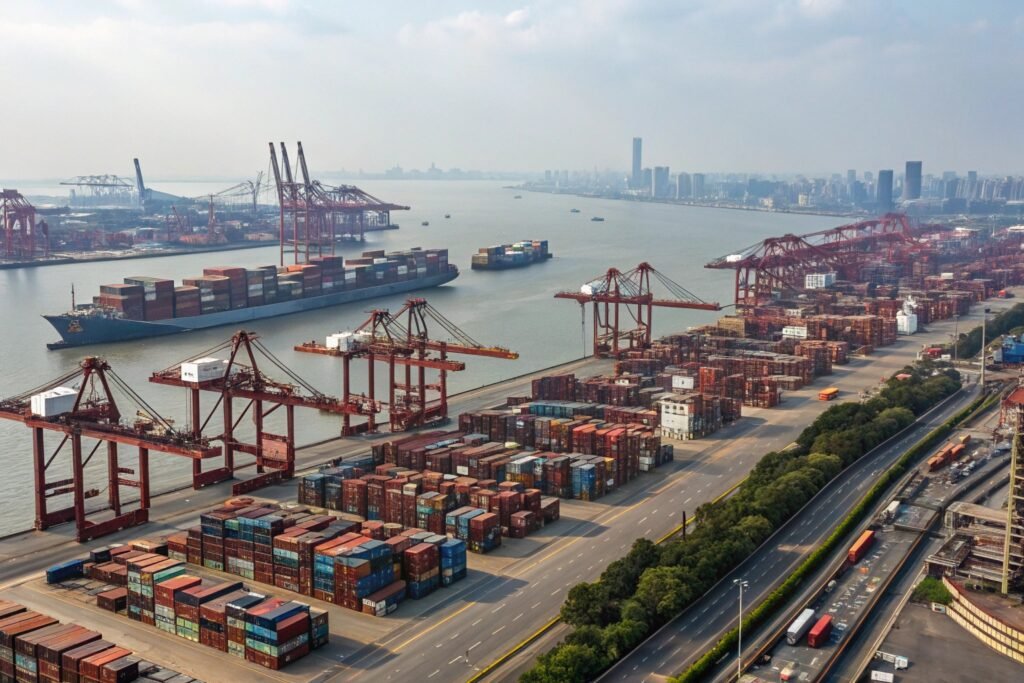
How do these ports stack up?
Here’s a direct comparison of key performance areas:
| Feature | Shanghai | Ningbo | Shenzhen |
|---|---|---|---|
| Volume | Highest | High | Medium |
| Export Speed | Medium | Fast | Medium |
| Freight Rate | Medium-High | Lowest | Low |
| Port Congestion Risk | Moderate | Low | Moderate |
| Factory Access | East China | East China | South China |
| Amazon Suitability | Good | Fair | Excellent |
| LCL Handling | Medium | Excellent | Good |
When clients ask us “Which is best?”, we reply: “It depends.” If you’re shipping low-margin goods, go with Ningbo. For speed, Shanghai. For flexibility, especially for mixed containers or eCommerce, Shenzhen wins.
Are there big cost differences?
Yes. As of mid-2025:
- Ningbo–Los Angeles: ~$3,200 for 40HQ
- Shanghai–Los Angeles: ~$3,500
- Shenzhen–Los Angeles: ~$3,600
That $300 difference can add up across dozens of containers. We help clients optimize for both cost and reliability.
How port location impacts shipping time and cost
Port choice doesn’t just affect sailing time. It also affects inland trucking, export paperwork, and last-mile customs processing.
The closer the port to your supplier and your destination market, the lower your overall shipping cost and the faster your cargo moves.

How does port proximity influence total delivery time?
Example: Factory in Yiwu, Zhejiang
| Option | Inland Time | Sea Transit | Total Time |
|---|---|---|---|
| Shanghai Port | 1 day | 16–20 days | 17–21 days |
| Ningbo Port | 0.5 day | 17–21 days | 17.5–21.5 days |
In this case, Ningbo saves half a day inland — and might offer better rates.
Now imagine a factory in Shenzhen:
| Option | Inland Time | Sea Transit | Total Time |
|---|---|---|---|
| Guangzhou | 1 day | 21–27 days | 22–28 days |
| Yantian (Shenzhen) | 0.5 day | 15–20 days | 15.5–20.5 days |
Yantian is closer and has faster sailings. That’s why it’s a top pick for U.S.-bound eCommerce cargo.
What about port fees and customs?
Some ports have:
- Lower export paperwork costs (e.g., Ningbo)
- Faster customs inspection times (e.g., Xiamen)
- Lower terminal handling charges (e.g., Qingdao)
We track these differences at GeeseCargo to help our clients avoid surprise costs and save 5–10% per shipment just by choosing a smarter port.
Conclusion
Choosing the right port in China isn’t just a logistics detail — it’s a business decision. By understanding each port’s strengths and matching it to your factory and destination, you can reduce costs, speed up delivery, and improve supply chain reliability.
